If you have a few tattoos, there's a good chance you have one or two you don't like. Whether it was a backyard scratcher offering cheap tattoos, an impulse purchase to declare a love that has now got a new girlfriend, or it's just plain ugly, we all have one.
We all have regrets and should-of-could-of moments. Considering that tattoos are forever, a bad tattoo will remind you, every time you change your clothes, of the tragedy on your skin.
Initially, you probably thought a tattoo was a one-off opportunity, and technically that is the case. Luckily, there are truly talented tattoo artists currently working within the industry worldwide. So bearing that in mind, there is the hope that maybe you could get a fantastic cover-up done.
No matter why you've changed your mind about the tattoo design—you've grown up a decade or two, or possibly the once-love of your life, Candy or Gavin, has now evolved into a psychopathic stalker whom you stay very, very far away from—having a horrible tattoo sucks.
Wanting to get rid of or disguise a second-rate tattoo is not unusual. There are even tattoo artists and studios that specialise in cover-up work.
You must keep in mind, there are limitations on covering up an old tattoo. But there are many success stories of people who now love their cover-up tattoos. If you're thinking of getting a cover-up done, read on!
We all have regrets and should-of-could-of moments. Considering that tattoos are forever, a bad tattoo will remind you, every time you change your clothes, of the tragedy on your skin.
Initially, you probably thought a tattoo was a one-off opportunity, and technically that is the case. Luckily, there are truly talented tattoo artists currently working within the industry worldwide. So bearing that in mind, there is the hope that maybe you could get a fantastic cover-up done.
No matter why you've changed your mind about the tattoo design—you've grown up a decade or two, or possibly the once-love of your life, Candy or Gavin, has now evolved into a psychopathic stalker whom you stay very, very far away from—having a horrible tattoo sucks.
Wanting to get rid of or disguise a second-rate tattoo is not unusual. There are even tattoo artists and studios that specialise in cover-up work.
You must keep in mind, there are limitations on covering up an old tattoo. But there are many success stories of people who now love their cover-up tattoos. If you're thinking of getting a cover-up done, read on!
Understanding How a Tattoo Cover-Up Works
When your tattoo was first done, the ink was deposited approximately one millimetre beneath the skin, into the dermis, which is the layer below the epidermis (the skin you see).
As your cover-up gets tattooed, the new ink is also deposited within the dermis, along with the old coloured ink. The pigment in the new inks does not go over the top of the old tattoo's pigment; rather the two colours combine to make a new colour, although the stronger or darker-coloured ink becomes dominant in the mixture. For example, red and blue ink mixed together make purple, underneath the skin or elsewhere.
Black is the most effective colour to cover up an old tattoo. Although, of course, a black-ink tattoo is not very attractive, and you may think you may as well have kept your old, horrible tattoo.
When a tattoo artist is designing a tattoo cover-up, they consider the colour in the old tattoo, and how it will mix with the new ink's colour. Talented tattoo artists work out a strategy for placing the new design and colours over the old one.
As your cover-up gets tattooed, the new ink is also deposited within the dermis, along with the old coloured ink. The pigment in the new inks does not go over the top of the old tattoo's pigment; rather the two colours combine to make a new colour, although the stronger or darker-coloured ink becomes dominant in the mixture. For example, red and blue ink mixed together make purple, underneath the skin or elsewhere.
Black is the most effective colour to cover up an old tattoo. Although, of course, a black-ink tattoo is not very attractive, and you may think you may as well have kept your old, horrible tattoo.
When a tattoo artist is designing a tattoo cover-up, they consider the colour in the old tattoo, and how it will mix with the new ink's colour. Talented tattoo artists work out a strategy for placing the new design and colours over the old one.
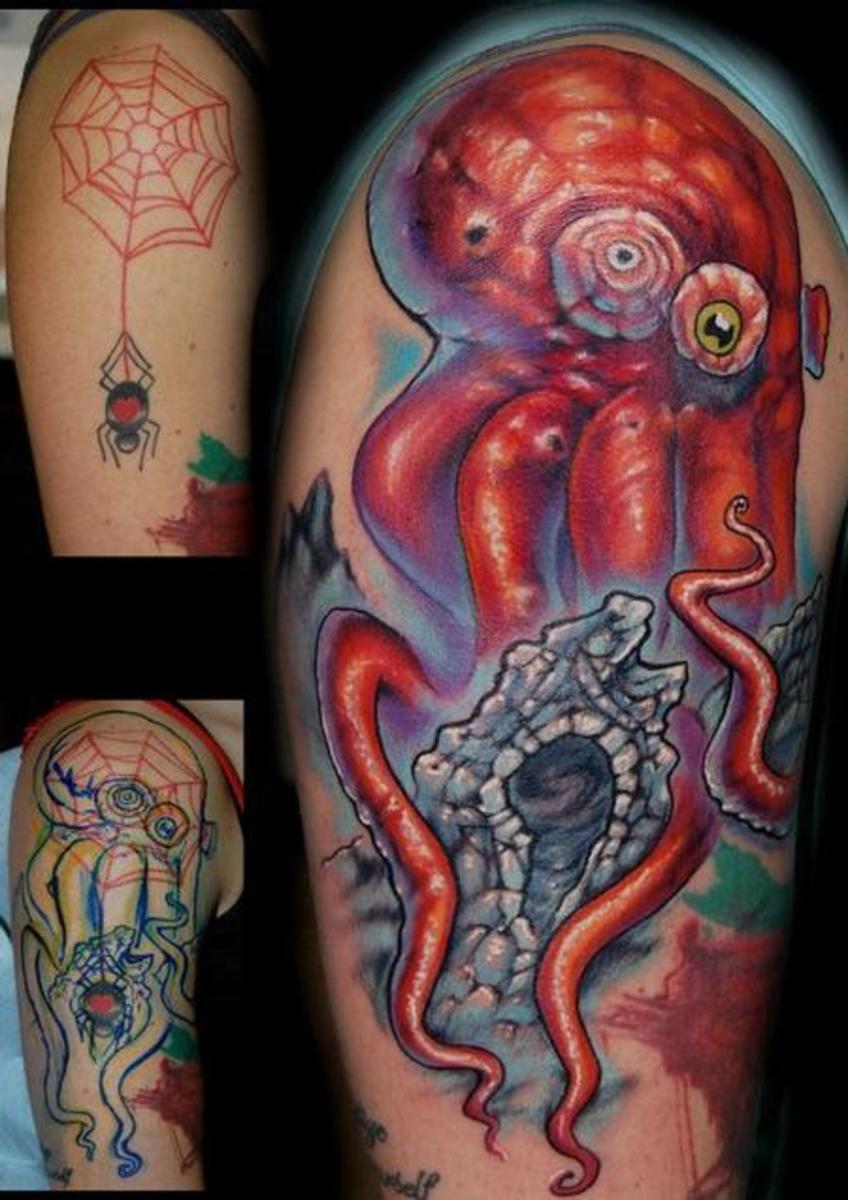
Quick Reference: Cover-Up Colours
- Traditionally black was the main colour used in tattoo cover-ups.
- Artists can now also use browns, oranges, greens, blues and magentas when doing a tattoo cover-up.
- New coloured inks, when merged with the old ink underneath the skin, can create a whole new colour.
- Darker versions of the same colour can cover up lighter colours.
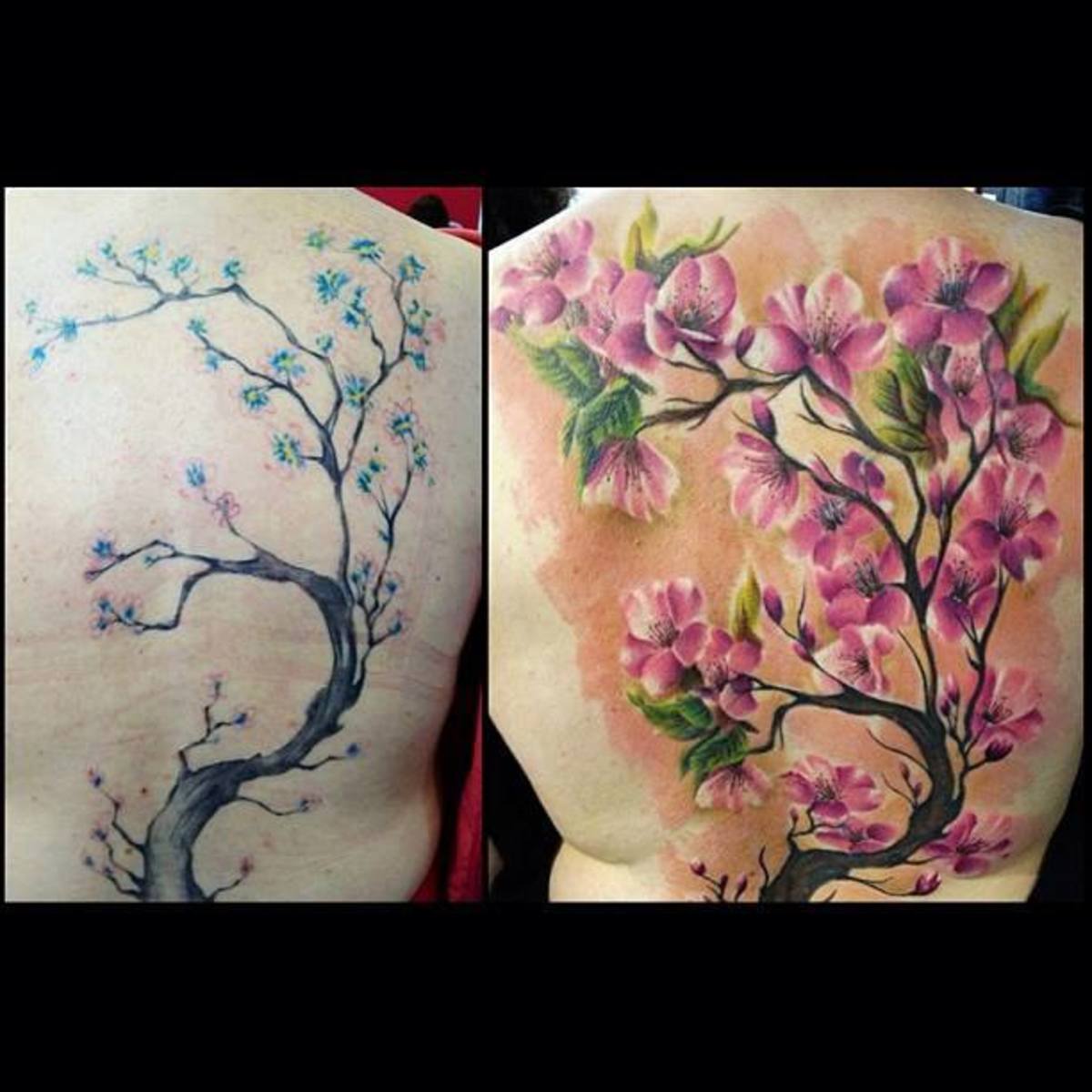
Colours of Ink in Tattoo Cover Ups
Traditionally, black was the main colour used in tattoo cover-ups. Although, as the tattoo community becomes more skilled, artists are using more colours and clever placement to hide old, unwanted tattoos.
Tattoo cover-ups can also use:
A good rule of thumb: A darker shade of a colour can cover itself. So lime green can be covered with emerald green, and light blue with royal blue or purple.
Tattoo cover-ups can also use:
- reds
- blues
- greens
- browns
- oranges
- purples
- dark magenta
A good rule of thumb: A darker shade of a colour can cover itself. So lime green can be covered with emerald green, and light blue with royal blue or purple.
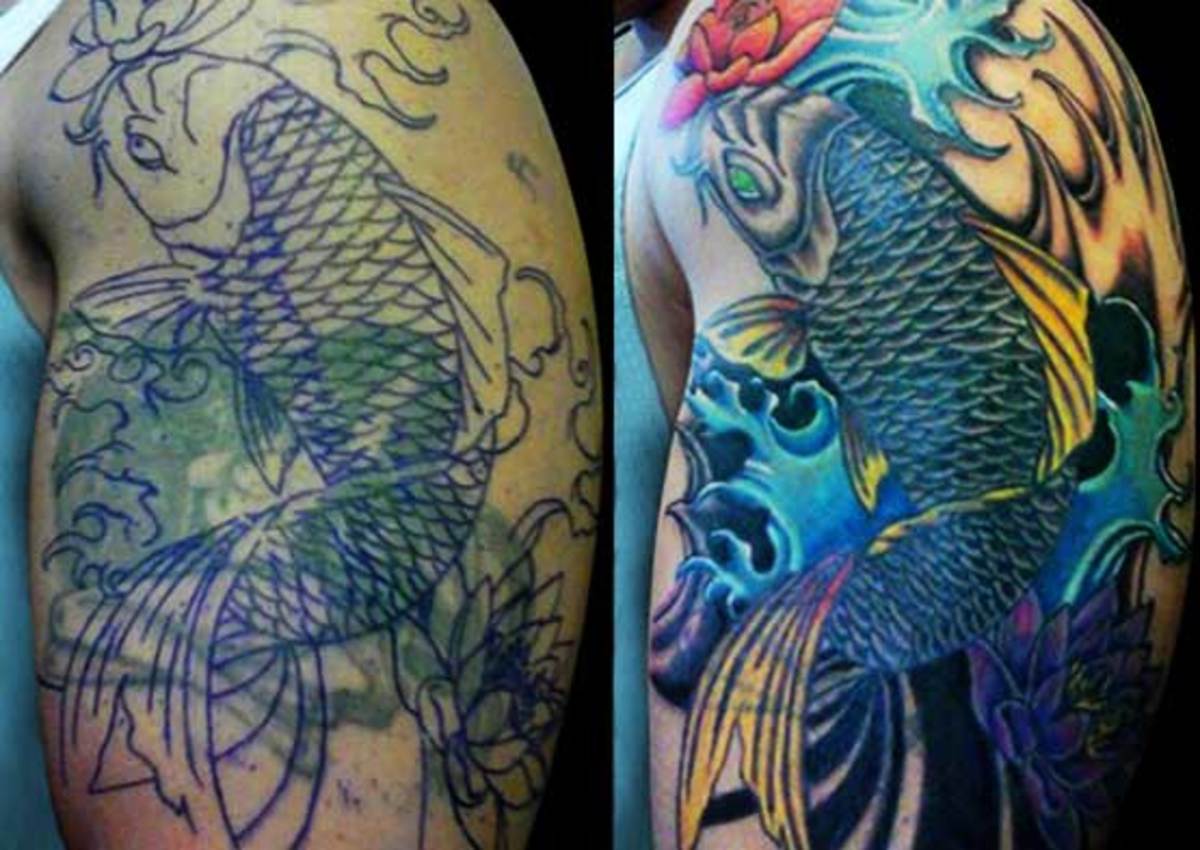
What Can Be Done in a Cover-Up?
When your artist is creating a cover-up design, they will:
Often tattoos that are designed as cover-ups are around thirty percent larger than the first tattoo. This way, the darker areas of the design can camouflage the old tattoo, and lighter colours can be used on virgin skin, deceiving the eye into believing the cover-up tattoo is the only tattoo that has ever been there.
- Place tracing paper over your old tattoo and trace the outline and major features of your design. This gives them a reference for the areas of the tattoo that need a heavier cover-up design.
- Put the outline on a light table and place another piece of thin tracing paper over the top.
- Begin designing your cover-up tattoo, working around the faint outline of your old tattoo, to camouflage the areas that need it.
Often tattoos that are designed as cover-ups are around thirty percent larger than the first tattoo. This way, the darker areas of the design can camouflage the old tattoo, and lighter colours can be used on virgin skin, deceiving the eye into believing the cover-up tattoo is the only tattoo that has ever been there.
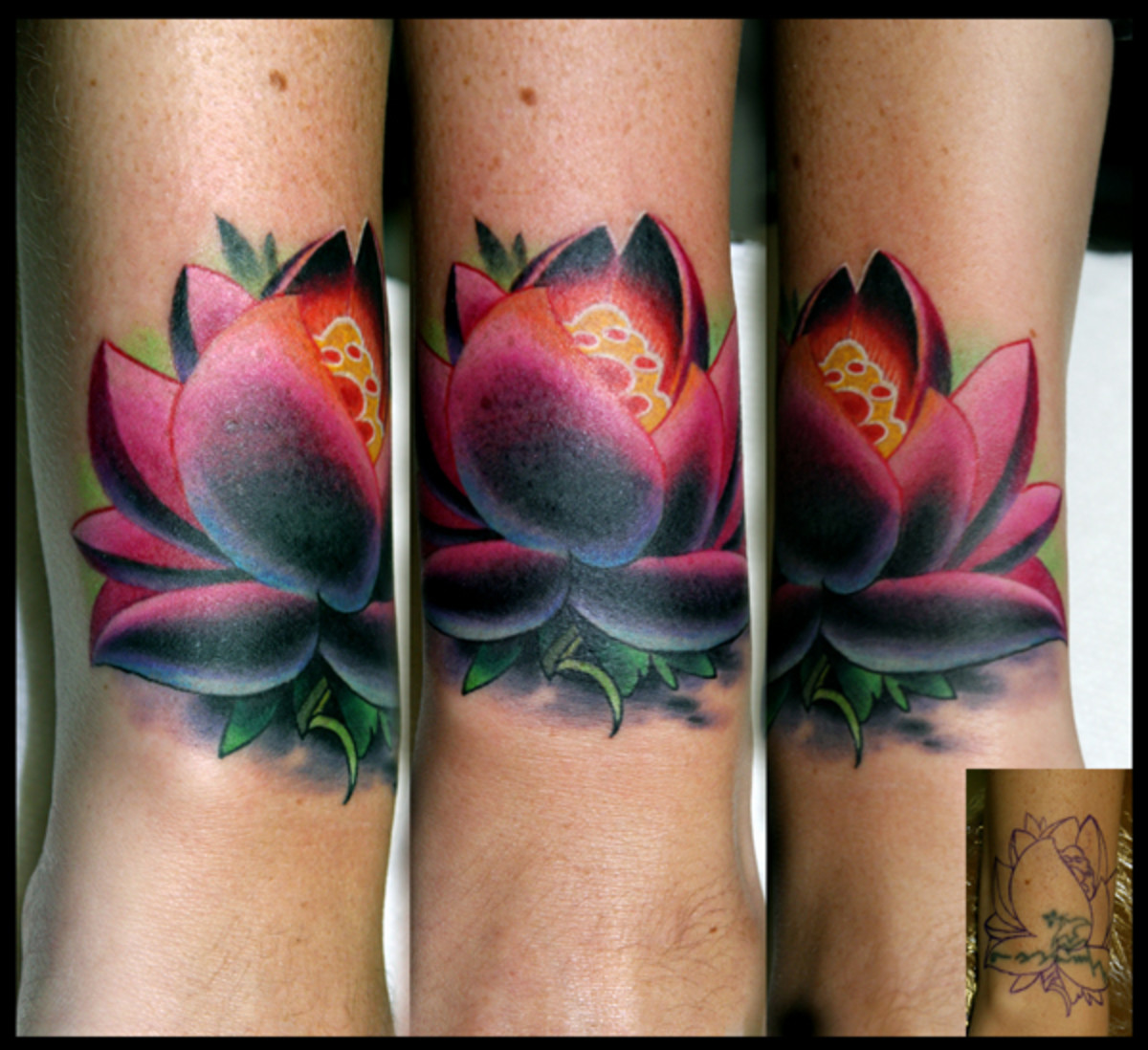
Other Tattoo Designs and Tricks Used in Cover-ups
- Incorporating the old design into the new tattoo.
- Re-working an old tattoo, strengthening weak lines, or adding in features like blush on cheeks, or the illusion of hair.
- Correcting the spelling in an old tattoo.
- Creating white-based or white-backed tattoos by taking a few preliminary sessions to put white ink over the old ink. Each session lightens the old tattoo by about 10%. Repeated sessions can raise this percentage to 30%, although scarring from over-working the skin would be a valid concern.
- Fading the old tattoo through laser removal can aid in an effective cover-up.
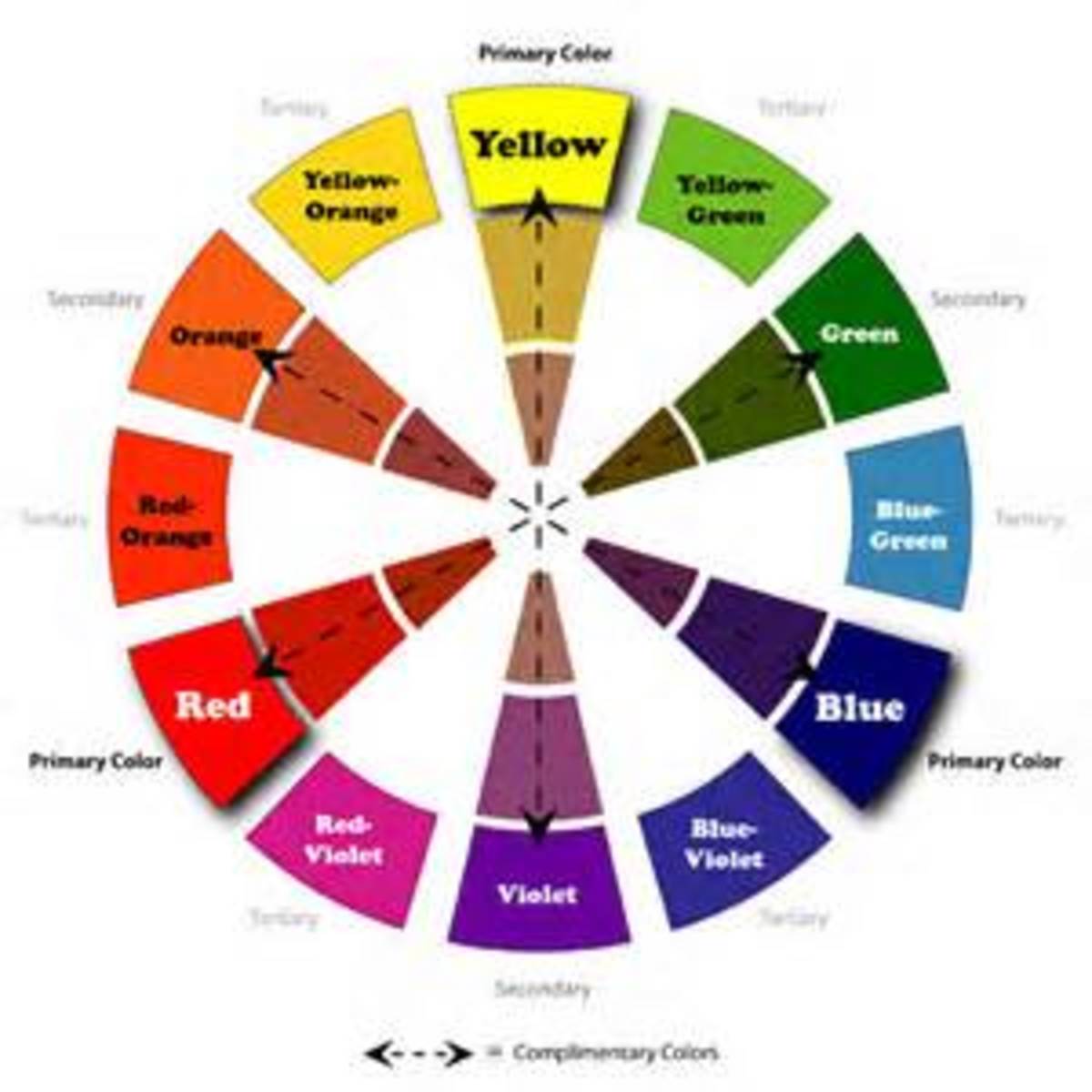
Can I Just Change the Colour?
Sometimes, a person loves their design but hates the colours. Changing just the colours can be done by using darker inks—although there is a risk this may make the old tattoo look even worse.
When changing the colours, your tattoo artist must consider the merging of the pigments in the ink. Not all colours can be changed into another colour. Of course, light colours can be darkened, for example:
When changing the colours, your tattoo artist must consider the merging of the pigments in the ink. Not all colours can be changed into another colour. Of course, light colours can be darkened, for example:
- a lavender can be changed into a purple,
- pink to magenta,
- blue to purple,
- red to brown,
- and yellow to green.
Examples
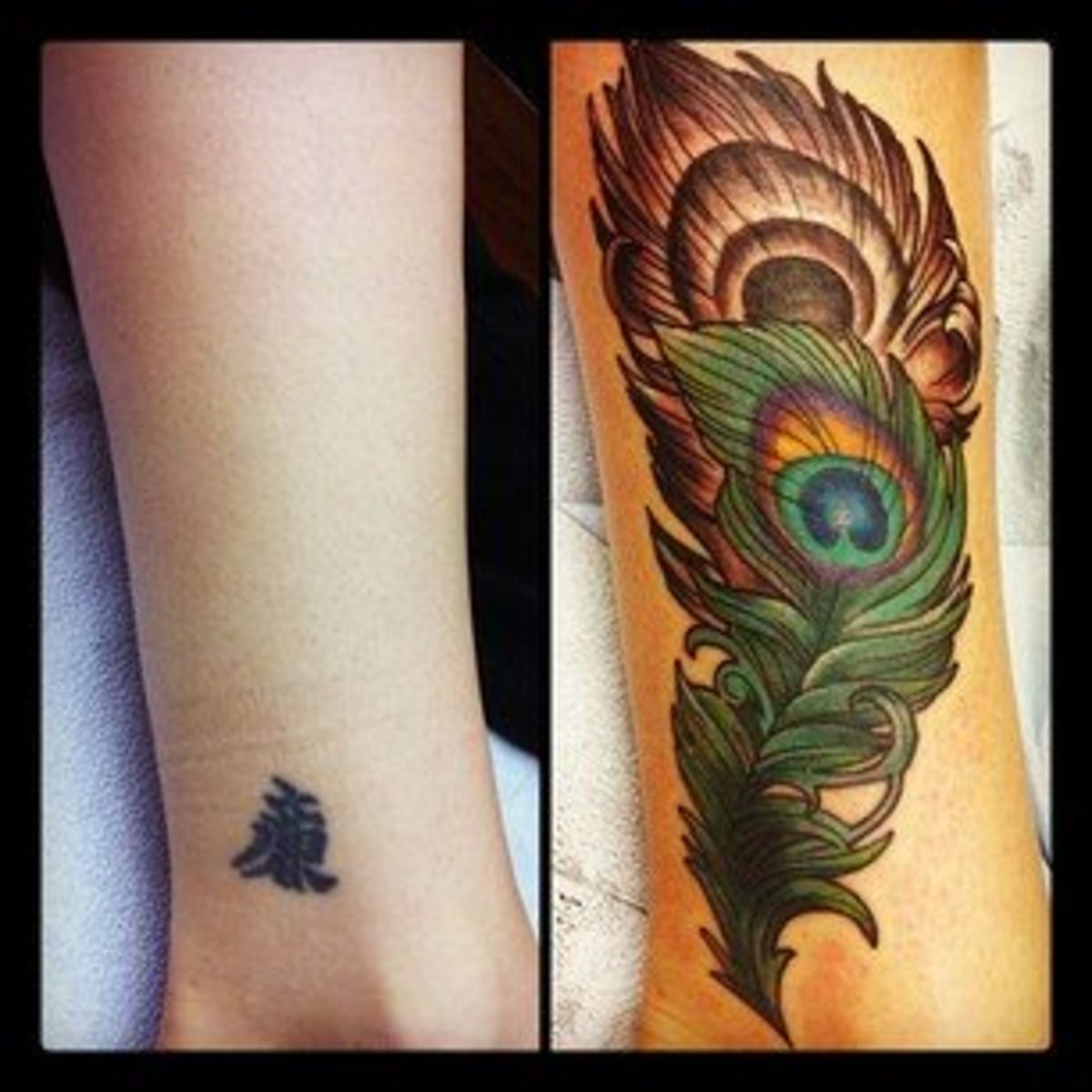
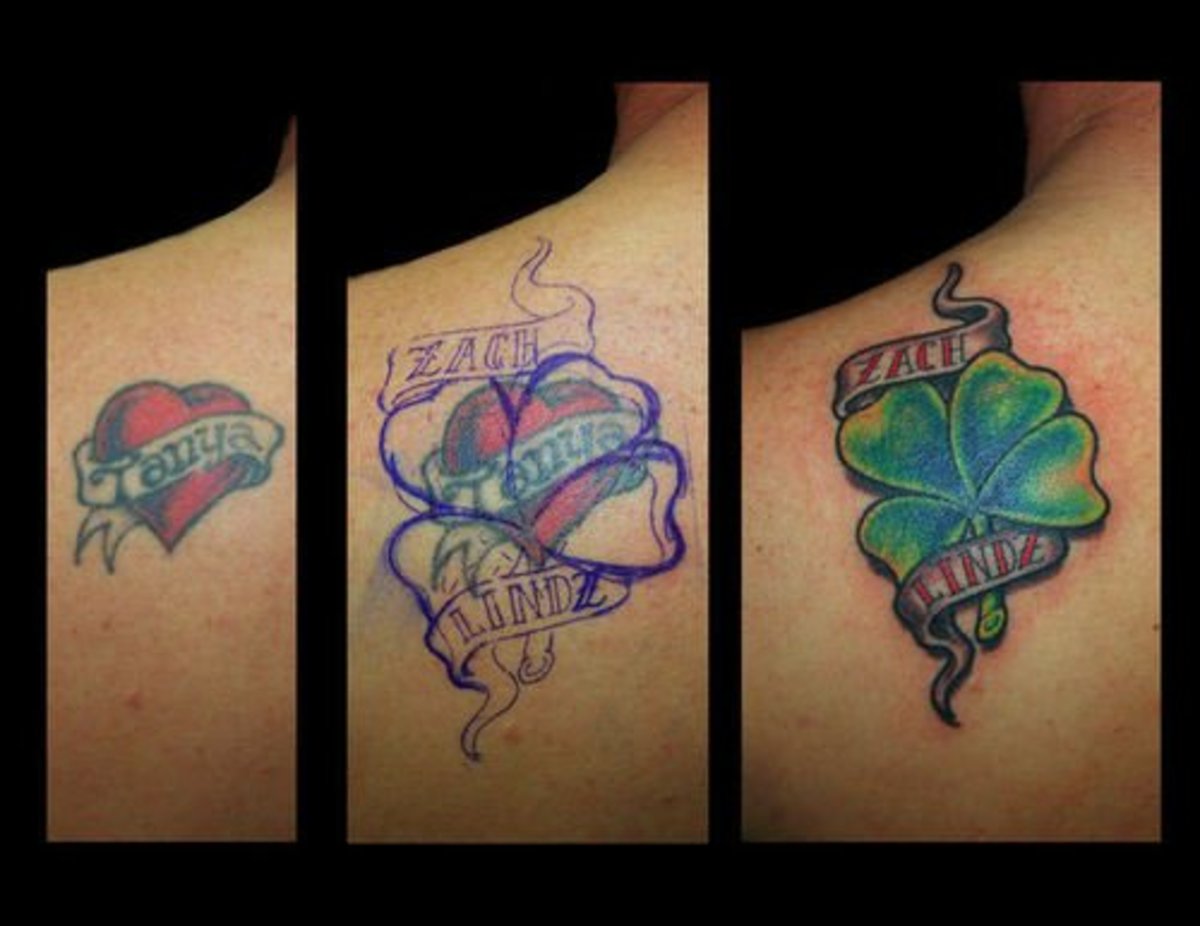
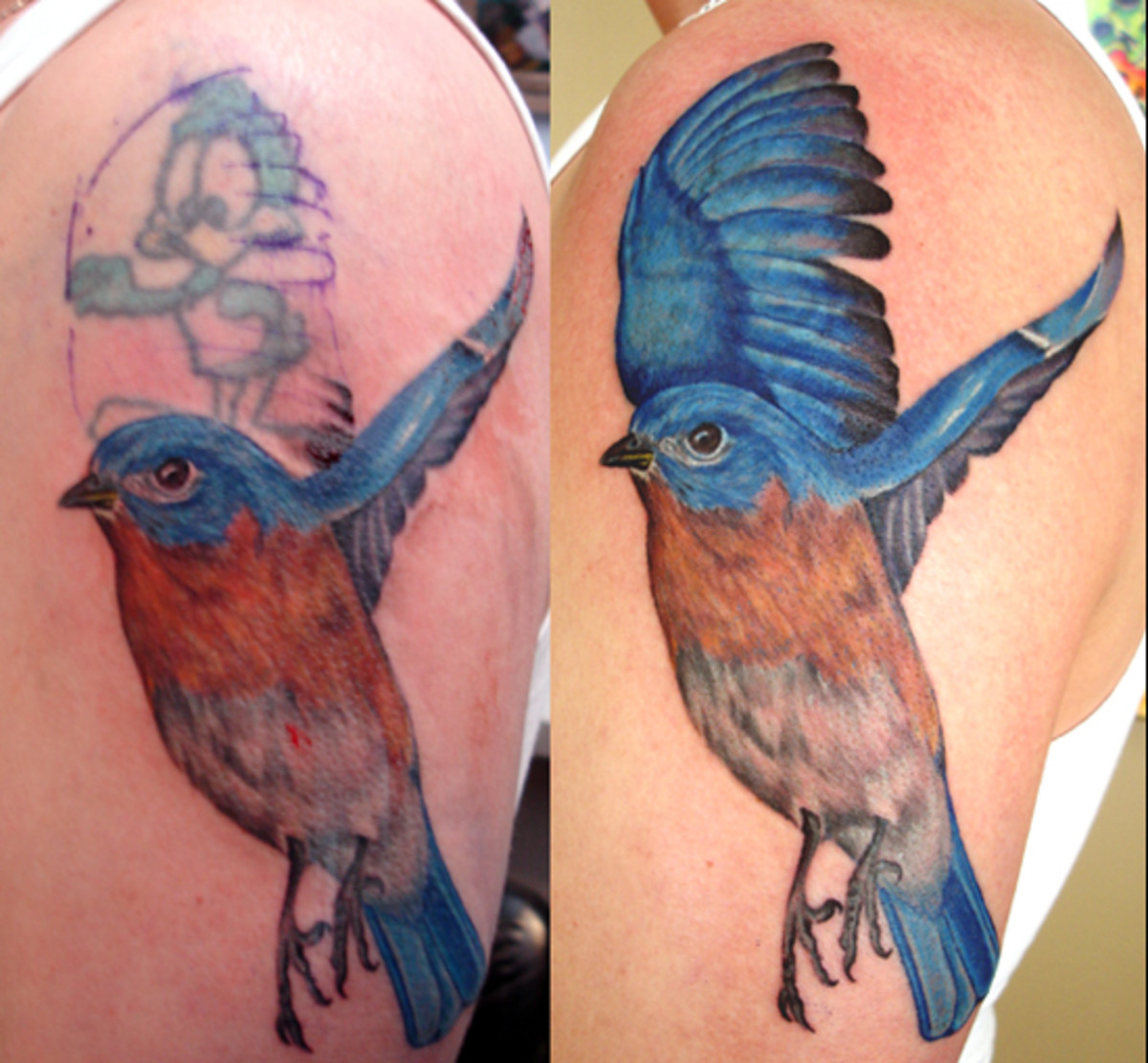
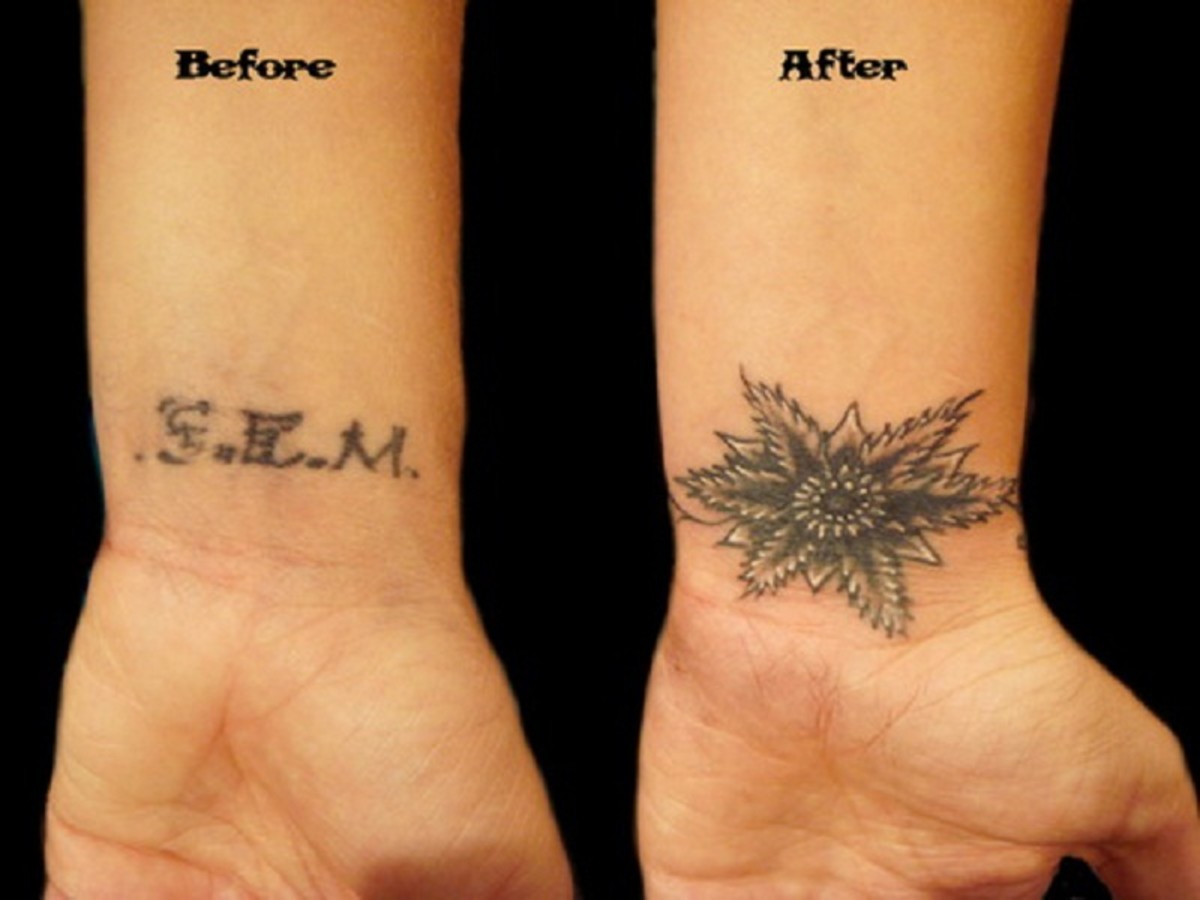
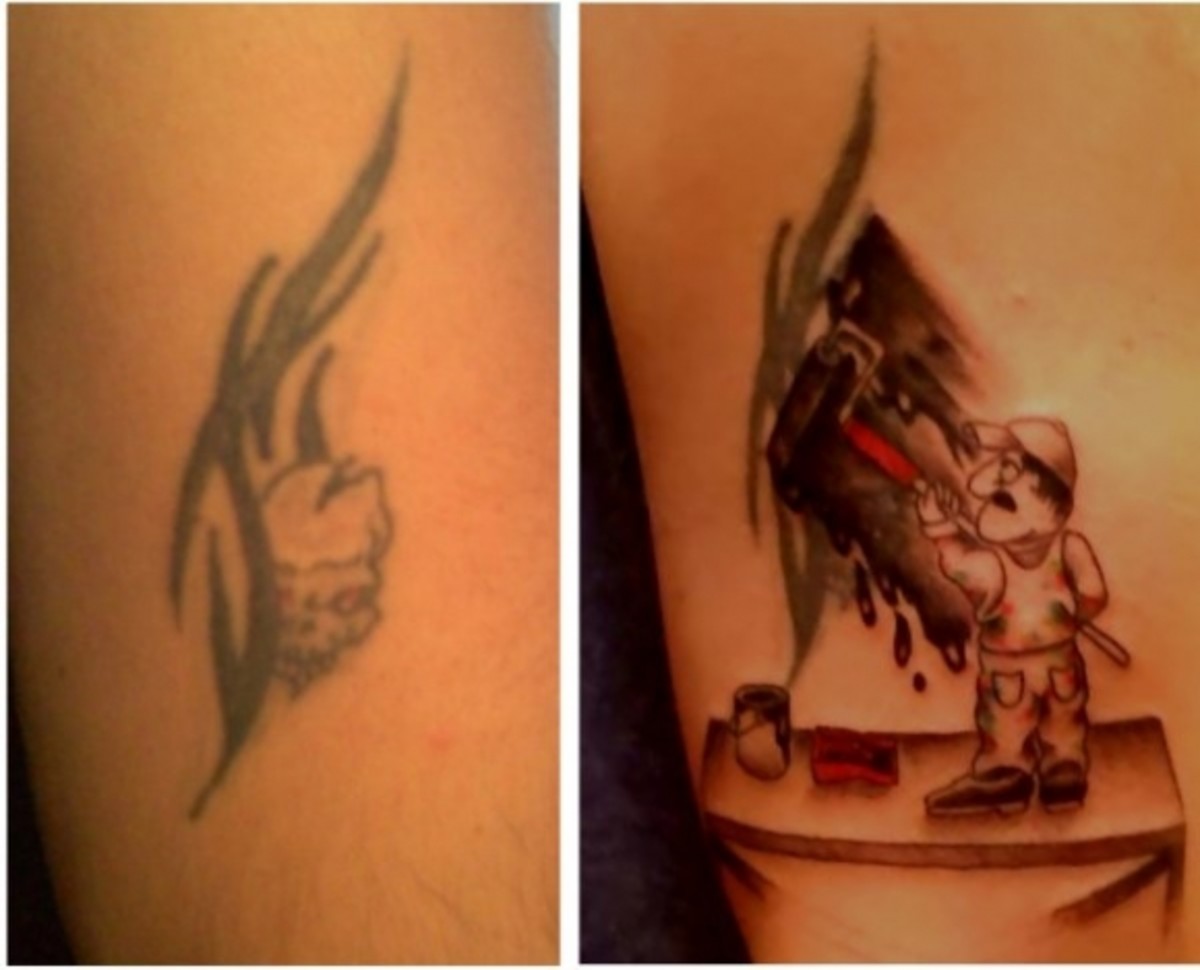
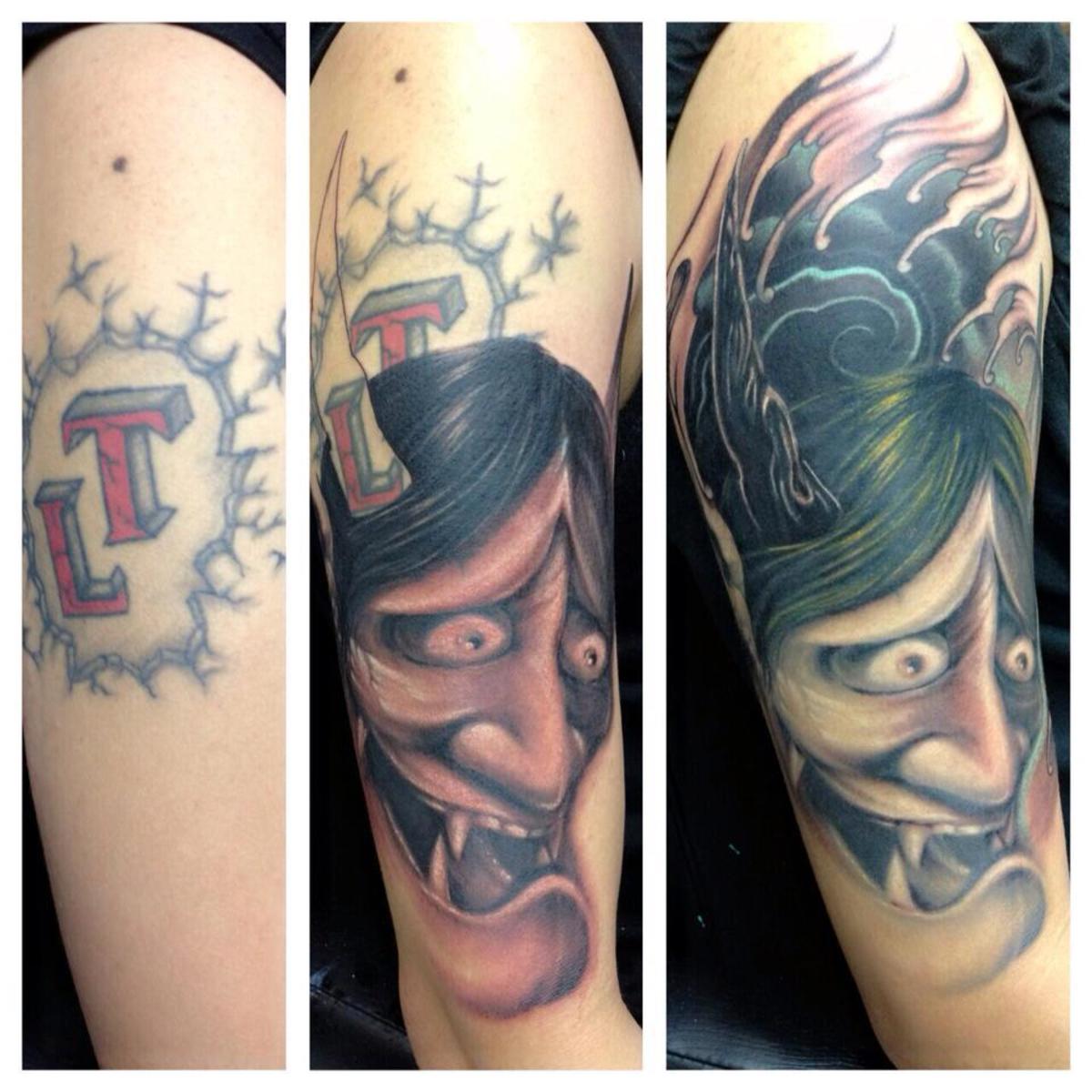
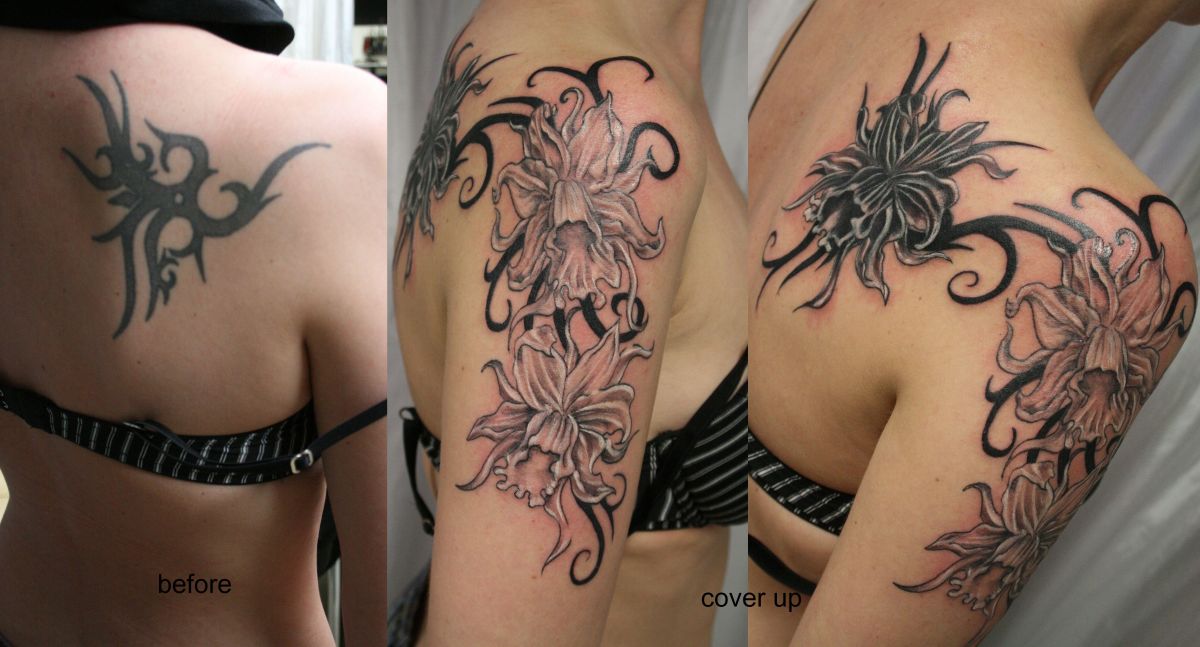
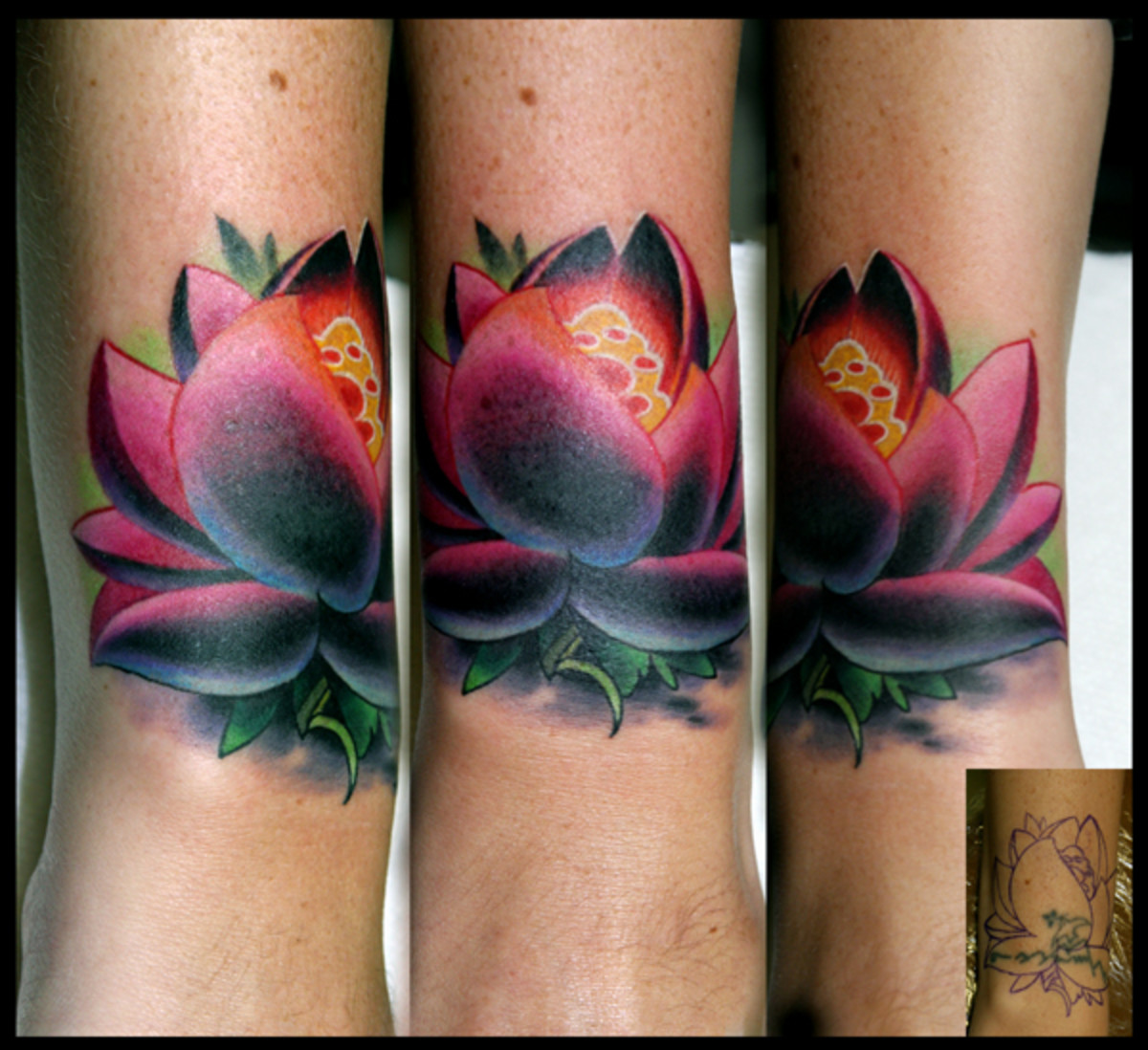
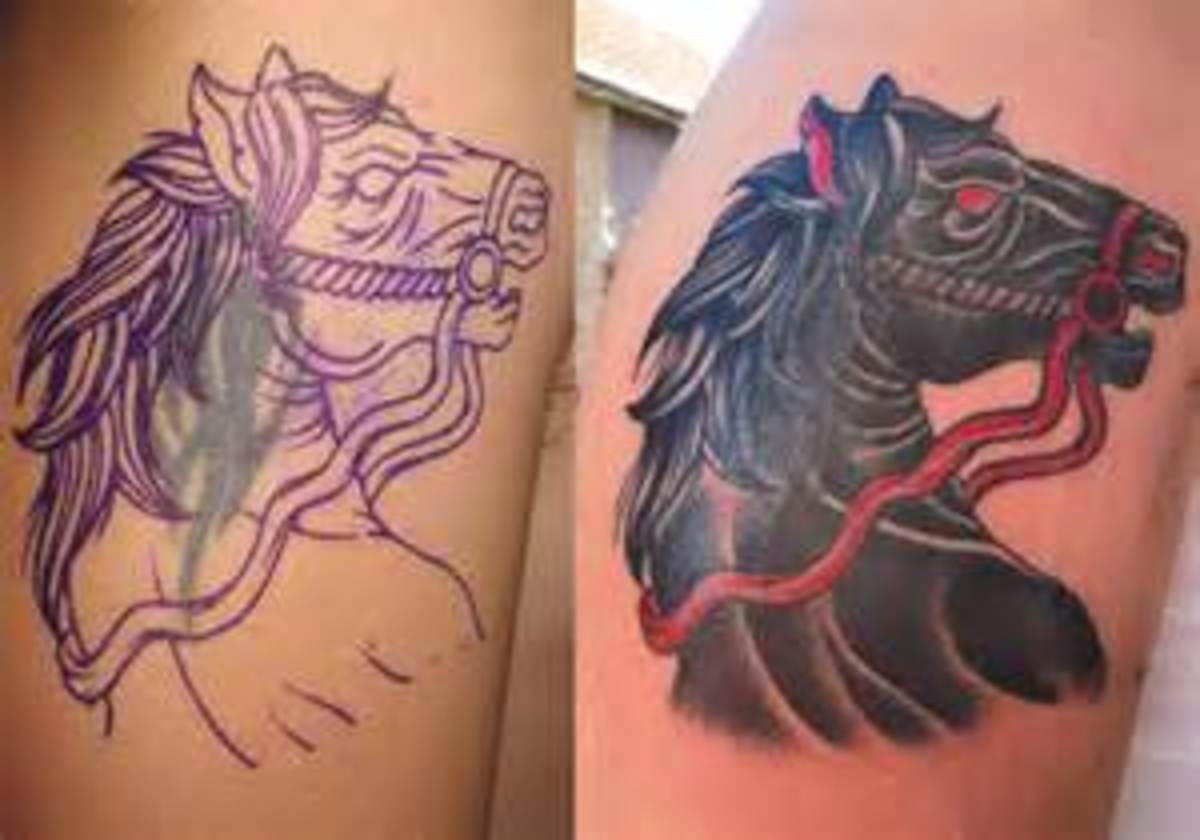
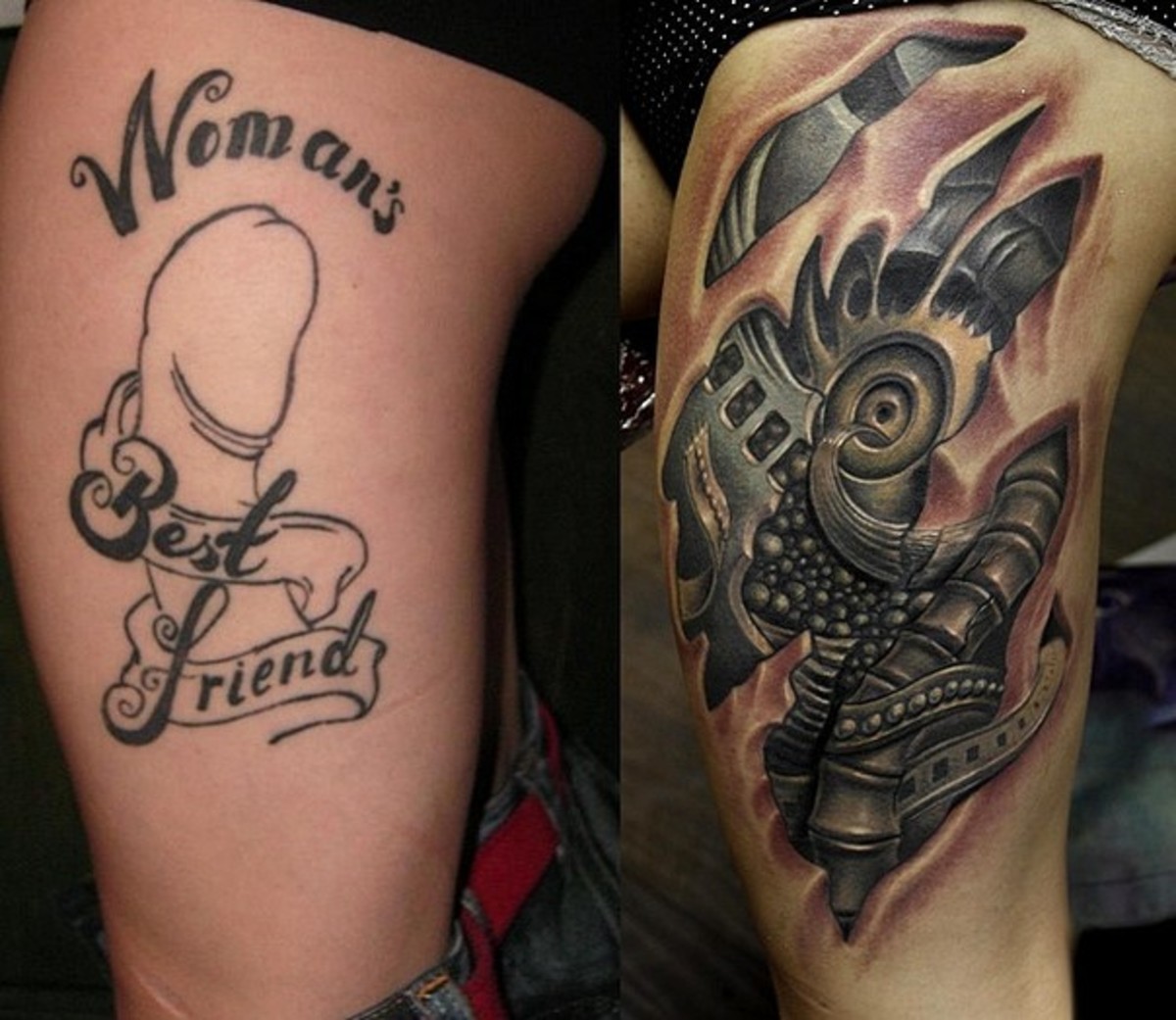
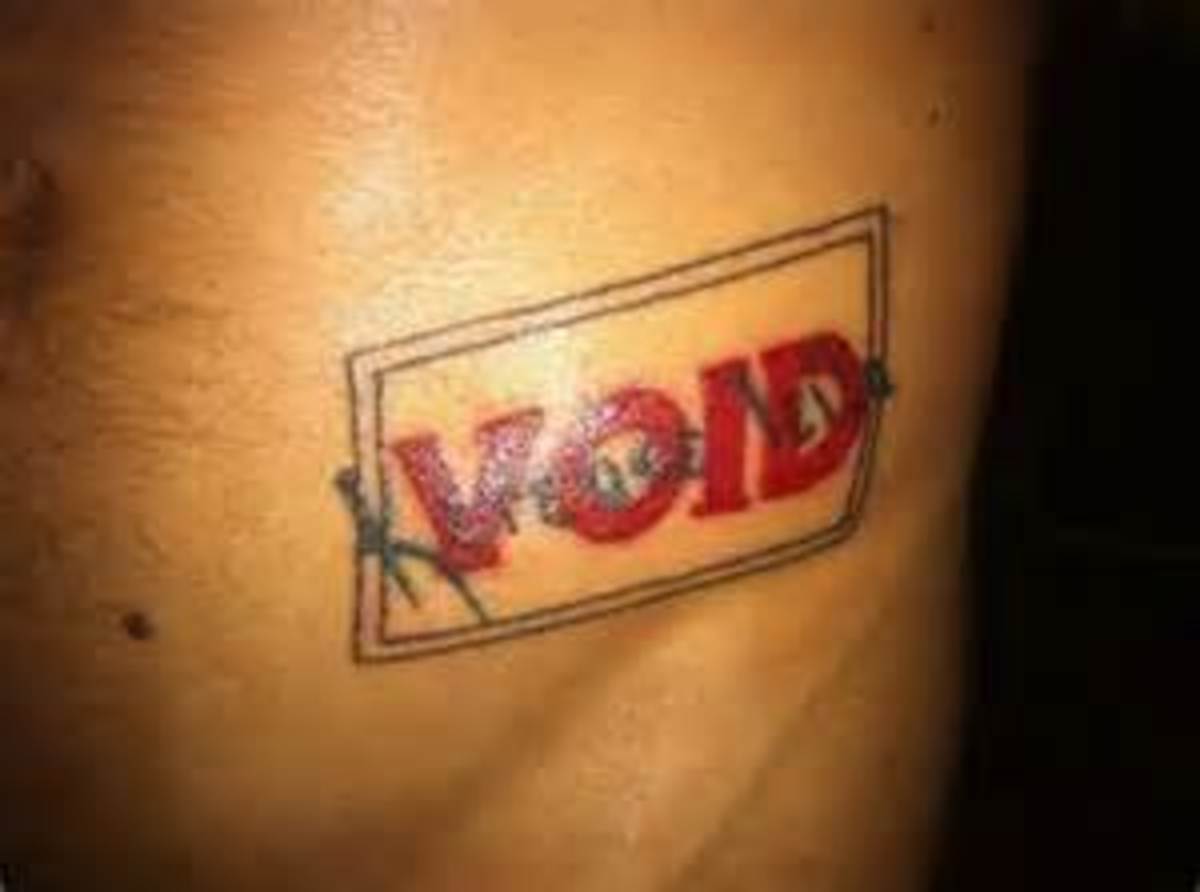
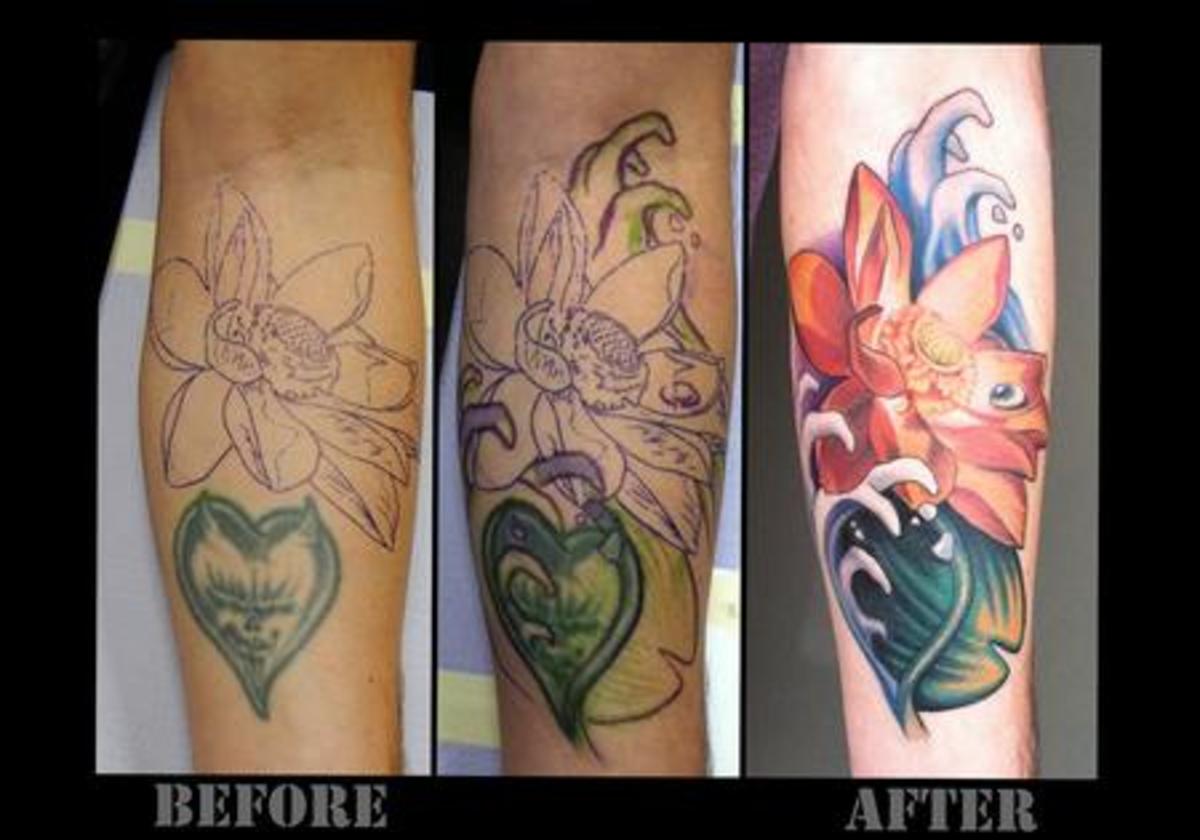
However you came into ownership of your new tattoo, please complete the poll below.
In the end, some of those crappy, faded tattoos we all sport are the stories of our lives. Considering our lives are full of ups and downs, maybe our tattoos should be too.
Just take your time to find that awesome tattoo artist that's just right for you. Don't scrimp on the dollars for the tattoo artist and the after-care procedures you follow.
Hope it all goes well.
In the end, some of those crappy, faded tattoos we all sport are the stories of our lives. Considering our lives are full of ups and downs, maybe our tattoos should be too.
Just take your time to find that awesome tattoo artist that's just right for you. Don't scrimp on the dollars for the tattoo artist and the after-care procedures you follow.
Hope it all goes well.

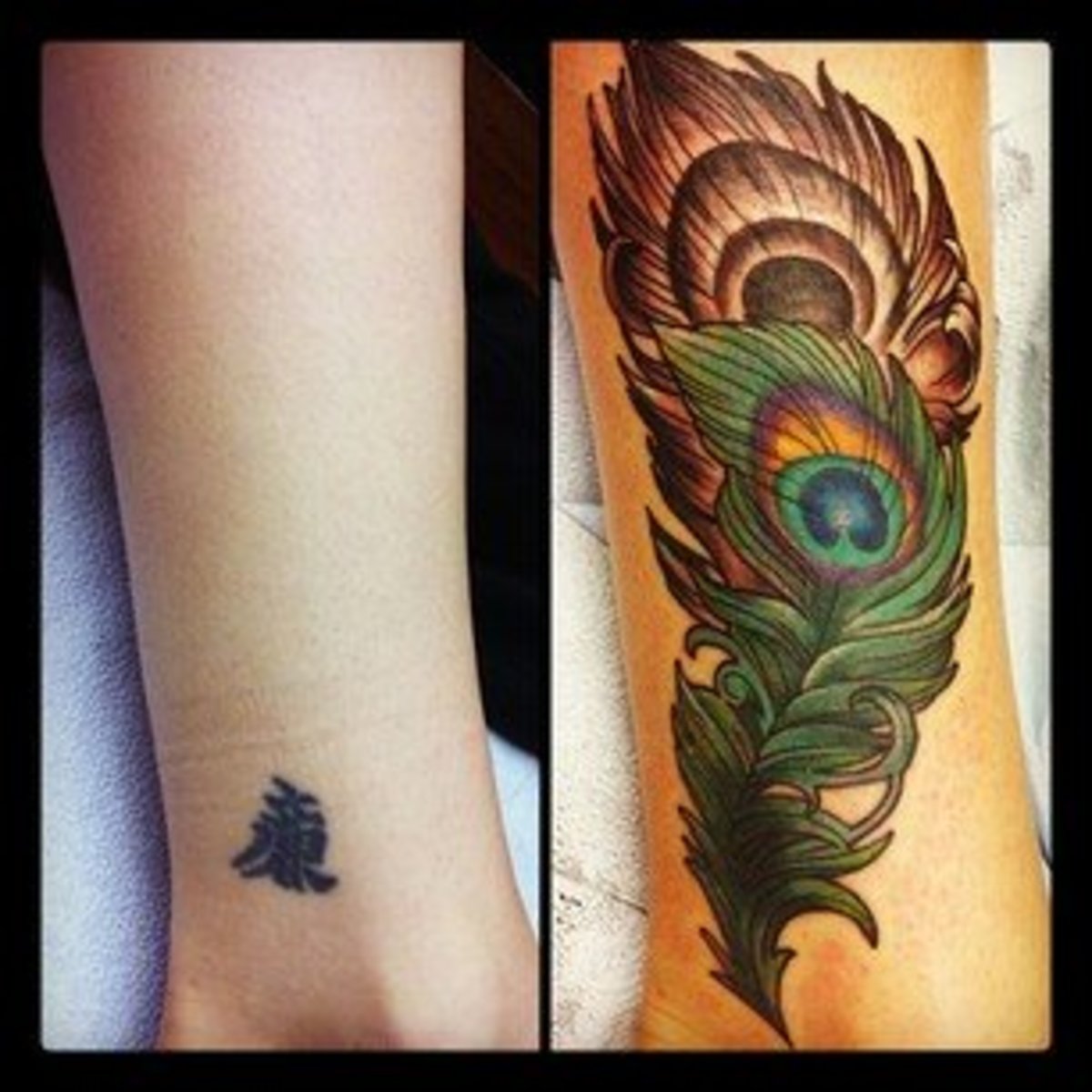





No comments:
Write comments